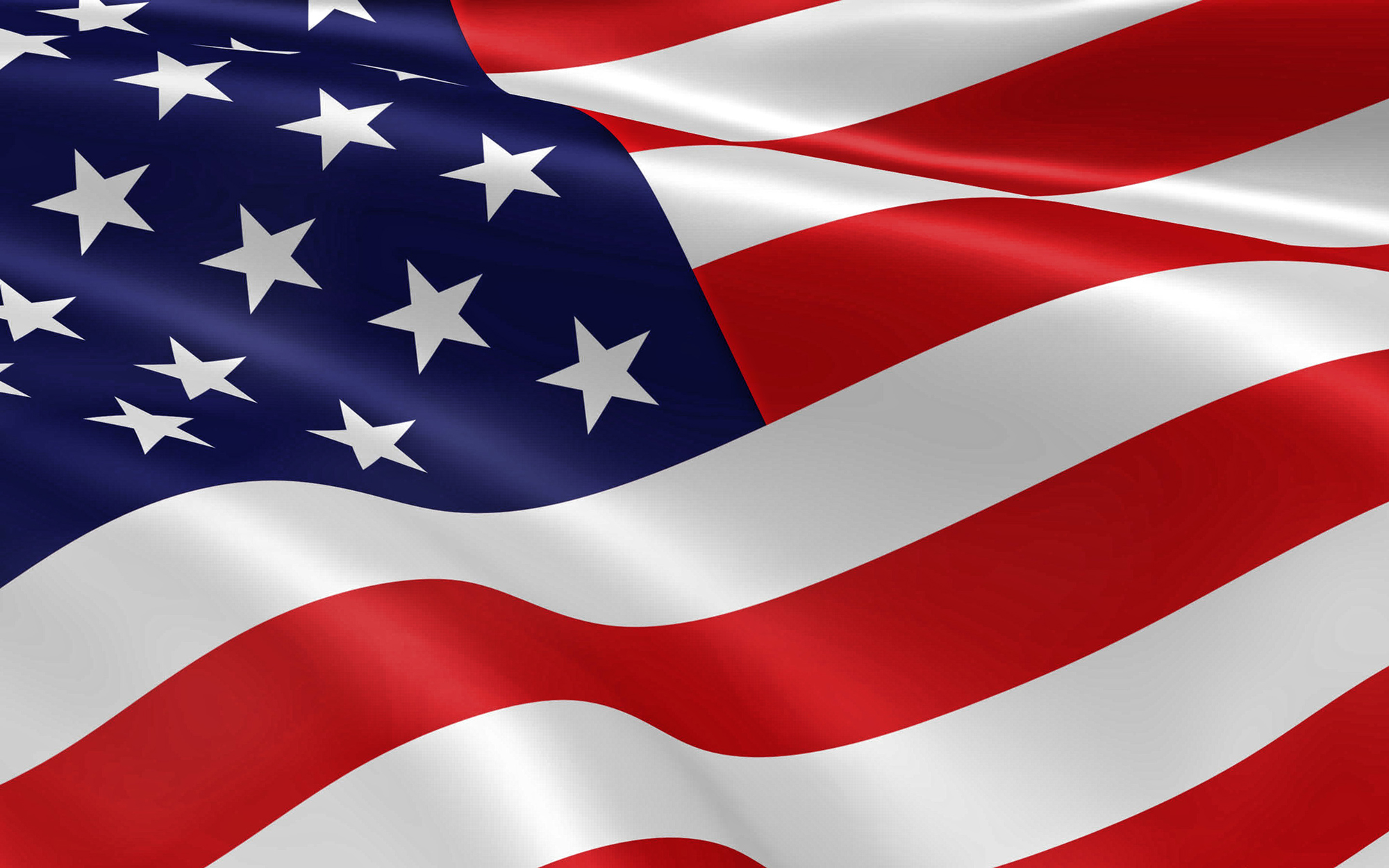

Over the years, the pages of UW Magazine have often featured veterans and active-duty military from the University of Washington community. Read a selection of the stories below.
Alyson McGregor, ’83, was part of a delegation that returned to Vietnam almost 30 years after the end of the war there. It brought to mind “Deep Mud Both Feet,” a Vietnamese saying that means you’re in a hard place, a deep place, where you cannot move. For a returning veteran reckoning with the emotional tensions of the past, the only option is to stand and deal. Margarethe “Grethe” Cammermeyer, ’76, ’91, traveled on the same mission of reconciliation and shared her memories. She served as an Army nurse in the war.
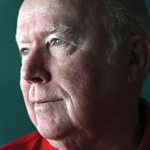
Bruce Crandall
Bruce Crandall, ’52, is one of eight Medal of Honor recipients noted on a stone monument on the UW campus. Crandall’s heroism in Vietnam was the subject of the 2002 film “We Were Soldiers.” “Those names on that memorial were just regular persons, just doing their duty,” Crandall said in 2012.
Nancy Nordhoff Dunnam, ’44, was one of only 1,074 courageous, trailblazing women selected out of more than 25,000 applicants to become Women Airforce Service Pilots (WASPs), who flew stateside during World War II. After the war, they did not qualify as veterans, their contributions were unacknowledged, and their records were sealed for more than 30 years. Dunnam was one of 300 surviving WASPs who traveled to Washington D.C. in 2010 to receive the Congressional Gold Medal.
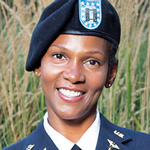
Shanda Taylor Boyd
Shanda Taylor Boyd, ’94, had her family life and military career disrupted by an undiagnosed brain injury. By connecting with veterans organizations and thinking positive, she took back control of her life.
Christopher Brown, ’16, a Marine combat veteran, works alongside veterans from all military branches at Growing Veterans, a farm on a 3.5-acre site north of Bellingham. The satisfying work comes with a deeper mission: helping war veterans reconnect with each other and their communities.
Rich Kirchner ’68, was haunted by the deaths of two soldiers in a bunker he designed. In 2013, he returned to Vietnam to find his fallen comrades.
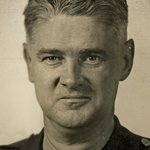
W. Stull Holt
W. Stull Holt, a longtime UW history professor, secretly rescued thousands caught behind enemy lines during World War II. He received the most prestigious honor the British government can bestow on a foreigner—the Order of the British Empire. He was an example of the “Warrior Intellectual,” a scholar who was eager to defend his country.
Each year, this award is given to a living UW alum who has made a positive impact on the local, national or international community. Recipients include:
2022. Michael Kilmer, ’01,’04, U.S. Coast Guard — After being forced out of the Coast Guard in 2002 for being gay, Kilmer became highly involved in the movement to repeal the discriminatory “Don’t Ask, Don’t Tell” policy — which finally happened in 2011. In the two decades since his discharge, Kilmer dedicated his life to helping those who have served, holding several leadership positions at the U.S. Department of Veterans Affairs, where he currently serves more than 100,000 veterans in his position as the Director/CEO of VA for the Eastern Colorado Health Care System.
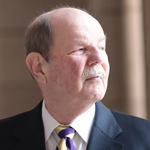
Dave Stone
2021. Dave Stone, ’68, U.S. Army — Throughout his 20-year military career, his second career as a government advisor and his third calling as an active UW alumnus, Dave Stone has modeled commitment and dedication. The lessons Stone learned in the Army have proved useful throughout his life and in his endeavors at the UW. “As an officer or supervisor, your first obligation is to take care of your people,” he says.
2020. Bill Center, MPA ’78, U.S. Navy – The retired rear admiral believes it is possible to eliminate extreme global poverty and says he has no plans to fully retire until that goal is reached. “When you look at the problems in the world, they all come down to extreme global poverty. If you want to make the world a better place, global poverty must be solved. It can be done. We are making great progress. And we have to keep going.”
2019. The Hon. Ronald E. Cox, J.D. ’73, U.S. Army – After rising to the rank of captain in the U.S. Army, Cox made his way to the UW School of Law, where he graduated in 1973. He went on to become a litigator and judge on the Washington State Court of Appeals. He retired from the court in 2018, after 23 years of service.
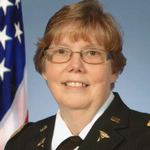
Priscilla “Patty” Taylor
2018. Priscilla “Patty” Taylor, ’93, ’96, U.S. Army – Taylor served as a member of the Army Nurse Corps during the Vietnam War, Operation Desert Shield and Operation Desert Storm. She’s helped wounded service members as a volunteer case manager for Operation Mend and gifted them with handmade “quilts of valor.” Whatever the role, she has lived by the motto, “be humble, be kind, serve the veterans.”
2017. Raymond Emory, ’52, U.S. Navy – A veteran of Pearl Harbor, Emory served from 1940 to 1946, seeing action throughout the Pacific theatre. When he retired to Hawaii in 1985, he found a new calling. After learning that many of the sailors killed at Pearl Harbor were buried as unknown, Emory began a 20-year mission to find their identities and return their remains to their families.
2016. Gen. Peter Chiarelli, M.P.A., ’80, U.S. Army – During his 40-year military career, Chiarelli commanded at every level, from platoon to corps. Among his posts, he served as commander of the Multi-National Corps – Iraq, Senior Military Assistant to U.S. Secretary of Defense Robert Gates and Vice Chief of Staff of the U.S. Army. Throughout his military service and beyond, he has been a tireless advocate for the men and women who serve their country, particularly those who return home with profound but invisible wounds of war.
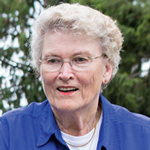
Margarethe “Grethe” Cammermeyer
2015. Col. Margarethe Cammermeyer, M.A. ’76, Ph.D. ’91, U.S. Army – Cammermeyer is lauded for leading the way for gays in the military. But her story is filled with examples of courage from nursing injured soldiers in war and pursuing a military career when women did not have many opportunities to sharing even the most painful moments of her personal story.
2014. Richard H. Layton, M.D. ’54, ’58; U.S. Navy – In 1946, Layton was a Second Class Petty Officer headed to Bikini Atoll in the Marshall Islands on a top-secret mission: to chart the effects of atomic bomb blasts on naval ships at sea. (Layton was 12 miles from two nuclear blasts.) Dr. Layton was a pioneer physician in the WWAMI and Physician Assistant programs, both dedicated to providing better access to medical care. For twenty years at Providence Hospital in Seattle, Dr. Layton directed a family practice residency that focused on serving inner-city populations.
2013. Charles W. H. Matthaei, ’43, U.S. Navy – Matthaei is a Tacoma business leader, a philanthropist and an advocate for community health programs. He worked for the family business, Roman Meal. In 2008, he was inducted into the Baking Hall of Fame. Matthaei has been honored by MultiCare Health Foundation and Center for Healthy Living, Boy Scouts of America, Tacoma Rotary and UW Department of Chemical Engineering. He spent much of WWII on the battleship USS Missouri and witnessed the formal surrender of Japan.
2012. Herb Bridge, ’47, U.S. Navy – A champion for low-income housing in Seattle, a co-chairman of the 2000 United Way campaign and an active advocate for the 1990 Seattle Goodwill Games, Bridge had a distinguished career in the Navy and was co-owner of Ben Bridge Jewelers.